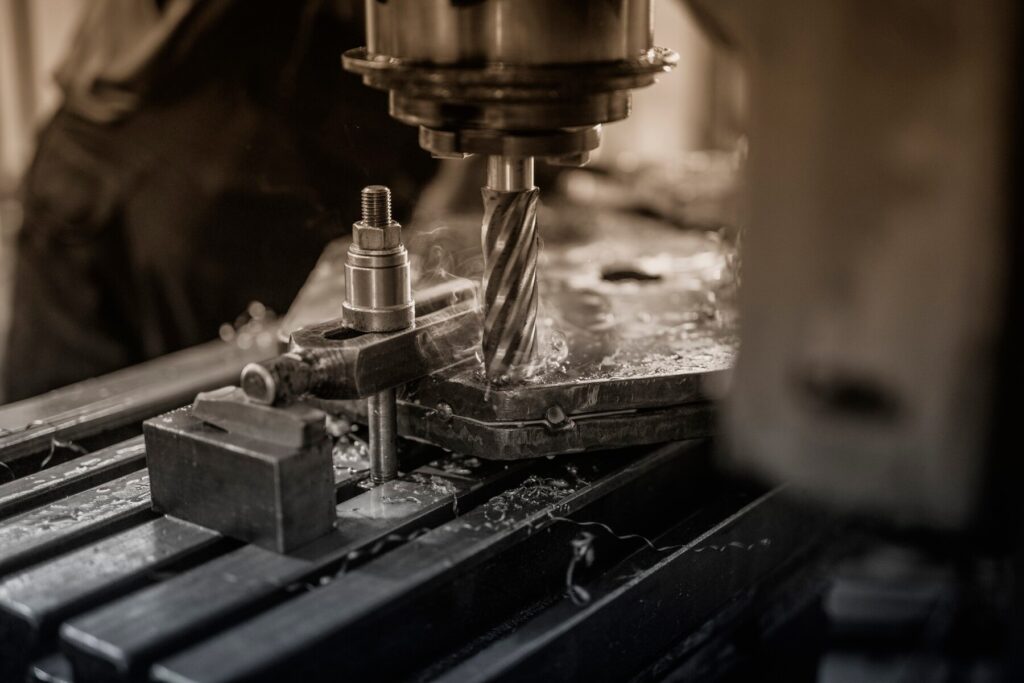In the medical field, precision and reliability are not optional—they are critical. This is where Medical CNC (Computer Numerical Control) technology becomes essential. CNC machining has revolutionized the production of medical devices and equipment by ensuring they meet stringent standards, are highly accurate, and comply with strict safety regulations. With its precision, versatility, and efficiency, Medical CNC has become a cornerstone for creating medical devices that save lives and improve patient outcomes.
In this article, we will explore why Medical CNC is critical for the production of high-quality medical equipment. From precision manufacturing to customization capabilities, its role in the medical industry highlights how advanced technology can address the unique challenges of medical device production. Let’s dive into its significance and uncover its transformative benefits.
Precision Manufacturing with Medical CNC
When it comes to medical devices and equipment, accuracy is not just a preference—it’s a requirement. Medical CNC technology ensures unmatched precision during the production process. CNC machines are capable of creating complex and highly accurate parts that are essential for devices like surgical instruments, orthopedic implants, or diagnostic imaging equipment. Their computer-controlled operations eliminate human error, ensuring the final product adheres to strict tolerances.
The ability to achieve tight tolerances is vital in medical applications where even the slightest deviation can lead to complications. For example, surgical implants like orthopedic screws or hip replacements must fit the human body precisely to function effectively. With Medical CNC, manufacturers can produce parts with exact measurements, ensuring compatibility and reducing the risk of failure. This precision translates into improved safety for patients and better performance of medical devices.
Ensuring Consistency and Quality
Quality assurance is vital for the success of medical devices, as they directly impact patient safety. Using Medical CNC technology, manufacturers can ensure a high degree of consistency in their production processes. CNC machines operate using programmed instructions, which means every item produced will adhere to the same set of parameters. This consistency ensures that medical devices are reliable, durable, and safe for use in critical healthcare settings.
Moreover, Medical CNC allows for the creation of medical equipment with uniform specifications across mass production or custom orders. Whether creating implants, surgical tools, or other vital components, CNC machining offers unparalleled repeatability, ensuring that every item meets industry regulations and quality standards. With its ability to produce flawless components consistently, Medical CNC supports the medical industry’s demand for both innovation and dependability.
Customization Capabilities
One of the most significant advantages of Medical CNC is its ability to support customization. Every patient has unique anatomical needs, and medical devices must be adaptable to meet these individual requirements. Medical CNC allows manufacturers to produce custom implants, surgical instruments, or prosthetics tailored to a specific patient’s anatomy or medical condition. This capability is achieved through advanced CNC technology, which can quickly switch between designs or process new data to produce specialized components.
For instance, orthopedic implants can be tailored using Medical CNC to align perfectly with a patient’s bone structure, thereby improving surgical outcomes and recovery times. Additionally, prosthetics can be customized to offer a better fit and greater comfort for patients. The flexibility of Medical CNC ensures that healthcare providers can access personalized medical equipment that enhances the quality of treatment and patient care.
Supporting Complex Medical Device Designs
Medical equipment and devices often require intricate designs and specialized engineering to function properly. Many of these devices rely on small, complex components that must be manufactured with extreme precision. Medical CNC offers a solution by allowing manufacturers to produce these intricate designs with ease. CNC machines can handle complex geometric patterns, multiple components, and advanced designs without compromising on accuracy or efficiency.
For example, advanced imaging devices such as MRI machines rely on complex machinery with parts that must fit together seamlessly. With Medical CNC, companies can produce these components with exceptional precision, supporting optimal performance. Similarly, specialized surgical instruments with fine details, like micro-scalpels or robotic surgical tools, are made possible through Medical CNC technology. This capability empowers the medical industry to innovate and create advanced tools that make modern medical treatments possible.
Faster Production and Reduced Lead Time
In the medical industry, time is critical. The faster that medical devices can be manufactured, the quicker they can be brought to market and into the hands of healthcare providers and patients. Medical CNC technology speeds up the production process by automating the manufacturing of complex components. Unlike traditional manufacturing methods, CNC machining minimizes delays associated with manual production processes, which can be slow and prone to human error.
Additionally, Medical CNC allows manufacturers to adapt quickly to changes, such as new design specifications, material updates, or market demands. The technology eliminates the need for costly retooling or modifications, reducing downtime and costs. This leads to faster lead times and ensures that medical professionals can access the tools and equipment they need as soon as possible. In critical situations, this time-saving capability can directly impact patient care and treatment outcomes.
Conclusion
The medical field relies on advanced technology to maintain safety, quality, and precision—and Medical CNC has proven to be a game-changer in this area. From its unmatched accuracy and consistency to its customization capabilities and ability to support complex designs, Medical CNC enables manufacturers to create high-quality medical devices and equipment that save lives.
As the demand for innovative medical devices continues to grow, Medical CNC technology will undoubtedly remain essential. It offers the perfect balance of efficiency, precision, and adaptability, ensuring that medical equipment meets the highest standards while addressing the unique needs of healthcare providers and patients. Whether creating implants, surgical instruments, or diagnostic machines, Medical CNC ensures that every product is safe, reliable, and ready to support modern medical advancements.


